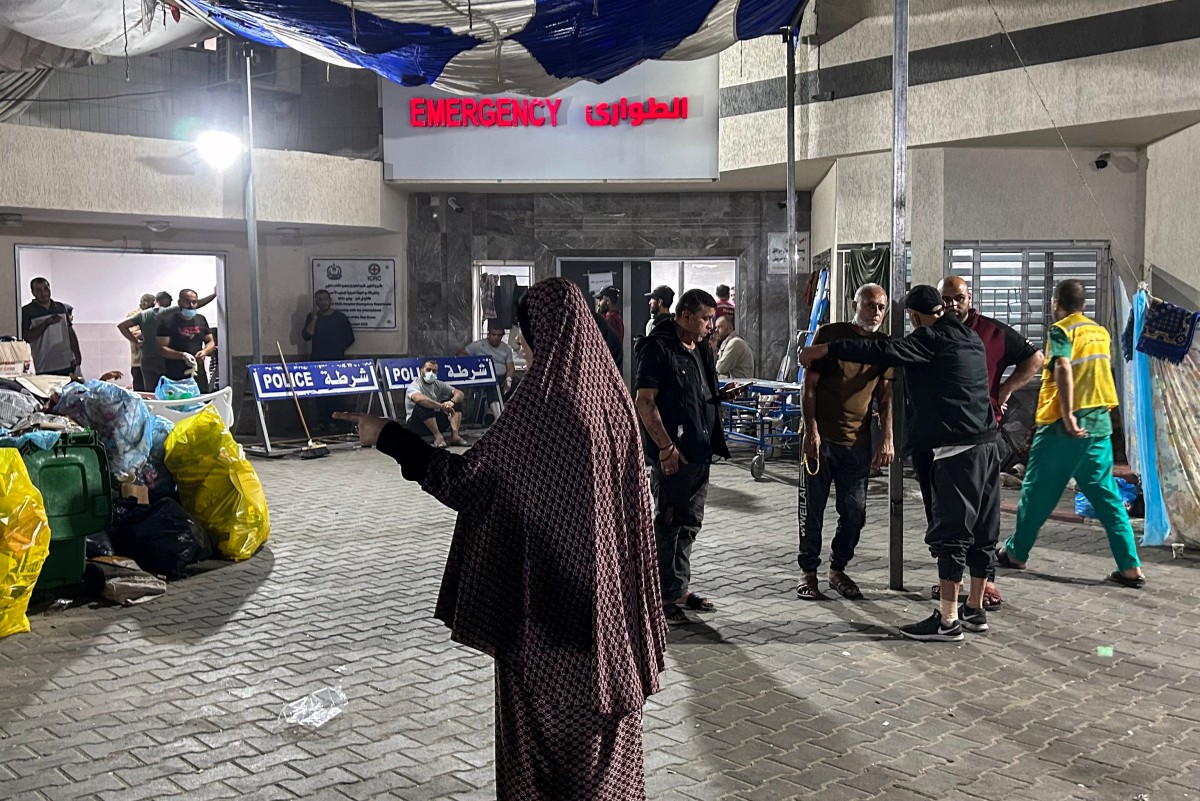
403
Sorry!!
Error! We're sorry, but the page you were looking for doesn't exist.
Gaza faces devastating collapse of its healthcare system
(MENAFN) Since the escalation of the Israeli offensive in 2023, Gaza has faced a devastating collapse of its healthcare system, widespread child malnutrition, and numerous Palestinian civilian casualties. Yet, beyond these immediate impacts, there are less visible but equally dire consequences, especially regarding access to clean water. Even before the recent violence, Gaza was already grappling with a severe water crisis. Over 96% of its groundwater was deemed unsafe for consumption according to World Health Organization standards, mainly due to over-reliance on this water source, which requires desalination to be drinkable. Research shows that by 2022, more than a third of Gaza's households experienced water insecurity, with many others facing significant challenges related to water access.
The ongoing conflict has further devastated Gaza’s fragile water infrastructure, either through direct attacks or the war's indirect effects. Israel’s blockade has prevented the delivery of clean water and the necessary fuel for desalination processes, while efforts by the Israeli Defense Forces (IDF) to flood Hamas tunnels with seawater have likely increased the salinity of Gaza’s groundwater. Chlorine, a critical water treatment substance, has been banned since January 2024 under Israel’s classification of it as a "dual-use" item, meaning it can be used for both civilian and military purposes. While the United Nations Relief and Works Agency (UNRWA) managed to distribute limited chlorine supplies in September 2023, the overall situation remains dire. Israel's ongoing restrictions on water transfers further demonstrate how the flow of water into Gaza is politicized, worsening the humanitarian crisis.
The images of Palestinians wading through rubble and sewage-filled streets are stark reminders of the water crisis. Families like that of Adel Abu Obeida, who lives in a swamp of sewage, struggle daily with contaminated water, which has led to widespread health risks, including a surge in hepatitis A cases. Reports estimate that since October 2023, over 100,000 suspected cases of hepatitis A have been reported, a dramatic increase compared to previous years. In summary, Gaza's water crisis is a silent, yet catastrophic part of the ongoing humanitarian disaster, made worse by political decisions that prevent vital supplies from reaching those in desperate need.
The ongoing conflict has further devastated Gaza’s fragile water infrastructure, either through direct attacks or the war's indirect effects. Israel’s blockade has prevented the delivery of clean water and the necessary fuel for desalination processes, while efforts by the Israeli Defense Forces (IDF) to flood Hamas tunnels with seawater have likely increased the salinity of Gaza’s groundwater. Chlorine, a critical water treatment substance, has been banned since January 2024 under Israel’s classification of it as a "dual-use" item, meaning it can be used for both civilian and military purposes. While the United Nations Relief and Works Agency (UNRWA) managed to distribute limited chlorine supplies in September 2023, the overall situation remains dire. Israel's ongoing restrictions on water transfers further demonstrate how the flow of water into Gaza is politicized, worsening the humanitarian crisis.
The images of Palestinians wading through rubble and sewage-filled streets are stark reminders of the water crisis. Families like that of Adel Abu Obeida, who lives in a swamp of sewage, struggle daily with contaminated water, which has led to widespread health risks, including a surge in hepatitis A cases. Reports estimate that since October 2023, over 100,000 suspected cases of hepatitis A have been reported, a dramatic increase compared to previous years. In summary, Gaza's water crisis is a silent, yet catastrophic part of the ongoing humanitarian disaster, made worse by political decisions that prevent vital supplies from reaching those in desperate need.

Legal Disclaimer:
MENAFN provides the
information “as is” without warranty of any kind. We do not accept
any responsibility or liability for the accuracy, content, images,
videos, licenses, completeness, legality, or reliability of the information
contained in this article. If you have any complaints or copyright
issues related to this article, kindly contact the provider above.
Most popular stories
Market Research
- Thinkmarkets Adds Synthetic Indices To Its Product Offering
- Ethereum Startup Agoralend Opens Fresh Fundraise After Oversubscribed $300,000 Round.
- KOR Closes Series B Funding To Accelerate Global Growth
- Wise Wolves Corporation Launches Unified Brand To Power The Next Era Of Cross-Border Finance
- Lombard And Story Partner To Revolutionize Creator Economy Via Bitcoin-Backed Infrastructure
- FBS AI Assistant Helps Traders Skip Market Noise And Focus On Strategy




















Comments
No comment